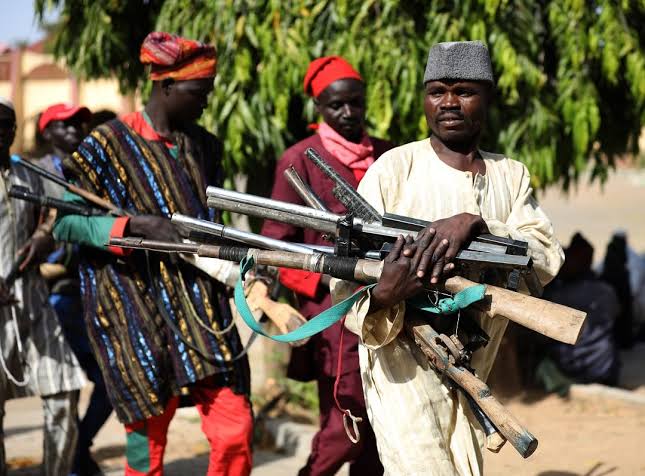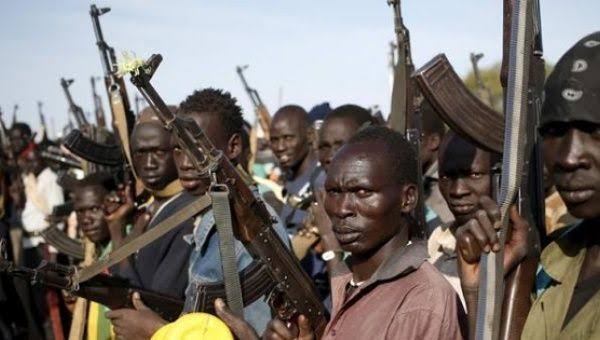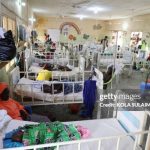BY JAMIMAH TITUS KUDLA
Insecurity in northern Nigeria has reached alarming levels, with armed groups, kidnappers, and insurgents wreaking havoc across the region.
The rise of violent extremism, banditry, and ethnic violence has destabilized communities, disrupted economic activities, and displaced thousands of people.
This security crisis poses a significant threat to the stability and development of the region, hindering efforts to promote peace, prosperity, and good governance.
The primary drivers of insecurity in northern Nigeria are multifaceted.
The Boko Haram insurgency, which began in 2009, remains a dominant force, particularly in the northeast.
Despite military efforts to combat the group, Boko Haram and its splinter faction, the Islamic State in West Africa Province (ISWAP), continue to carry out attacks on military installations, civilians, and aid workers.
The insurgents’ use of terrorism, including suicide bombings, kidnappings, and the destruction of infrastructure, has crippled local economies and created widespread fear.
In addition to insurgency, the rise of banditry in the northwest has become a major concern.
Armed groups, often referred to as bandits, engage in kidnapping for ransom, cattle rustling, and violent attacks on villages.
These criminal groups target both rural and urban areas, with many local governments struggling to contain the violence.
The inability of law enforcement agencies to adequately address this threat has led to a rise in self-defense groups and vigilantes, further complicating the security situation.
Ethnic and communal conflicts also contribute to the insecurity in northern Nigeria.
Tensions between farming communities and pastoralists have escalated into violent clashes over land and water resources.
These conflicts are often fueled by competition for scarce resources, particularly in areas affected by climate change and desertification.
In some cases, these conflicts are exacerbated by political manipulation and the involvement of armed groups, creating a volatile environment.
The consequences of Insecurity in northern Nigeria are far-reaching. The conflict has led to widespread displacement, with millions of people forced to flee their homes.
These internally displaced persons (IDPs) live in camps or makeshift shelters, where they face poor living conditions, lack of access to basic services, and a constant threat of violence.
In addition to the humanitarian crisis, insecurity has had a devastating impact on economic development.
Businesses are reluctant to invest in regions affected by violence, agricultural production is disrupted, and infrastructure is damaged or destroyed.

The government’s response to insecurity In northern Nigeria has been criticized for its inefficiency and lack of coordination.
While the military has made significant efforts to combat insurgents, these efforts are often hindered by corruption, inadequate equipment, and poor intelligence.
The police and other security agencies are underfunded and ill-equipped to deal with the scale of violence.
Additionally, the government’s approach has sometimes been reactive rather than proactive, with efforts to negotiate peace or address underlying grievances often falling short.
Addressing insecurity in northern Nigeria requires a comprehensive approach that goes beyond military intervention.
Strengthening intelligence gathering, improving coordination between security agencies, and investing in the training and equipping of local forces are essential steps.
Moreover, addressing the root causes of insecurity, such as poverty, unemployment, and competition for resources, is critical to preventing the rise of armed groups.
Conflict resolution programs and peacebuilding efforts at the community level can also help mitigate ethnic and communal tensions.
The security situation in northern Nigeria remains dire, with no immediate solution in sight.
However, with sustained political will, regional cooperation, and international support, the government can take meaningful steps to restore peace and stability.
Until insecurity is addressed, northern Nigeria’s prospects for growth and development will remain hindered, leaving the region vulnerable to further instability.
JAMIMAH TITUS KUDLA A 300 LEVEL STUDENT FROM MASS COMMUNICATION DEPARTMENT BORNO STATE UNIVERSITY, BORNO STATE.












